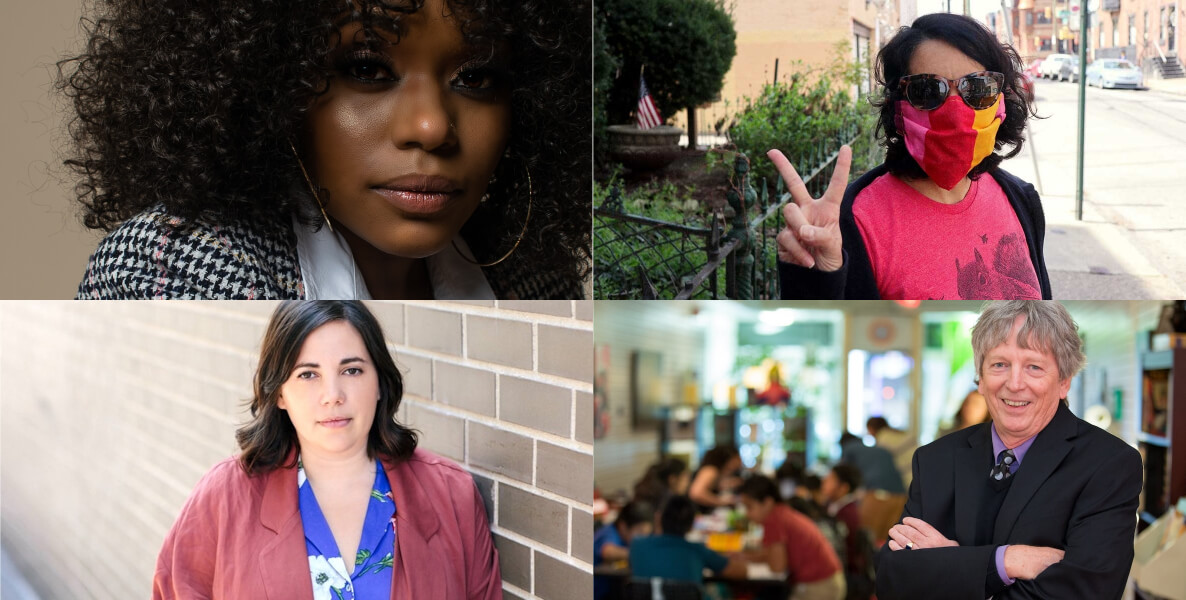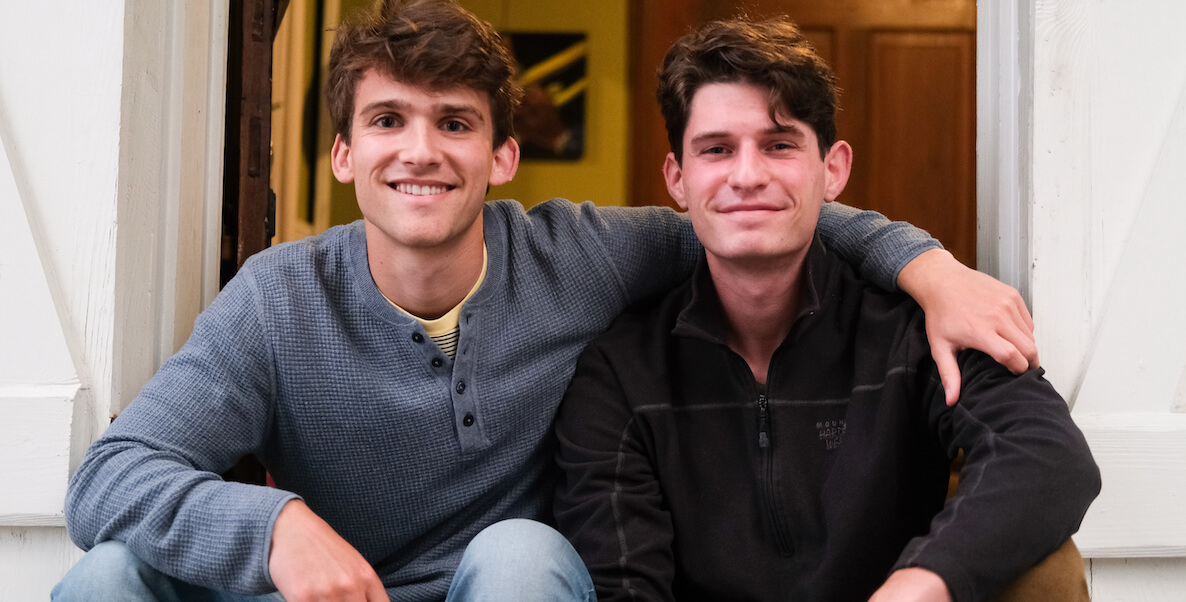There is a theory in the field of developmental psychology, popularized by Jeffrey Jensen Arnett, that there are five discrete stages of emerging adulthood.
Having taken approximately one human development class more than two decades ago, I only know about Arnett, and his (oft-refuted) research, because I’m on a video call with Penn seniors Alan Jinich and Max Strickberger—and, mid-call, they receive an email from a Penn professor asking them to talk to a class about this very subject.
It’s an exciting, and fitting, invitation, given that the two young men have become de facto experts on young adulthood in their own right: Last spring, they took off from college to roadtrip across the country, interviewing and photographing people ages 18 to 25 about their experiences during Covid-19.
Over the course of six weeks, with a bit of funding from Penn and their own money too, they drove 7,300 miles, stopping in 23 states to interview more than 80 people, recording the interviews and capturing photos on Jinich’s beloved Fuji XT1.
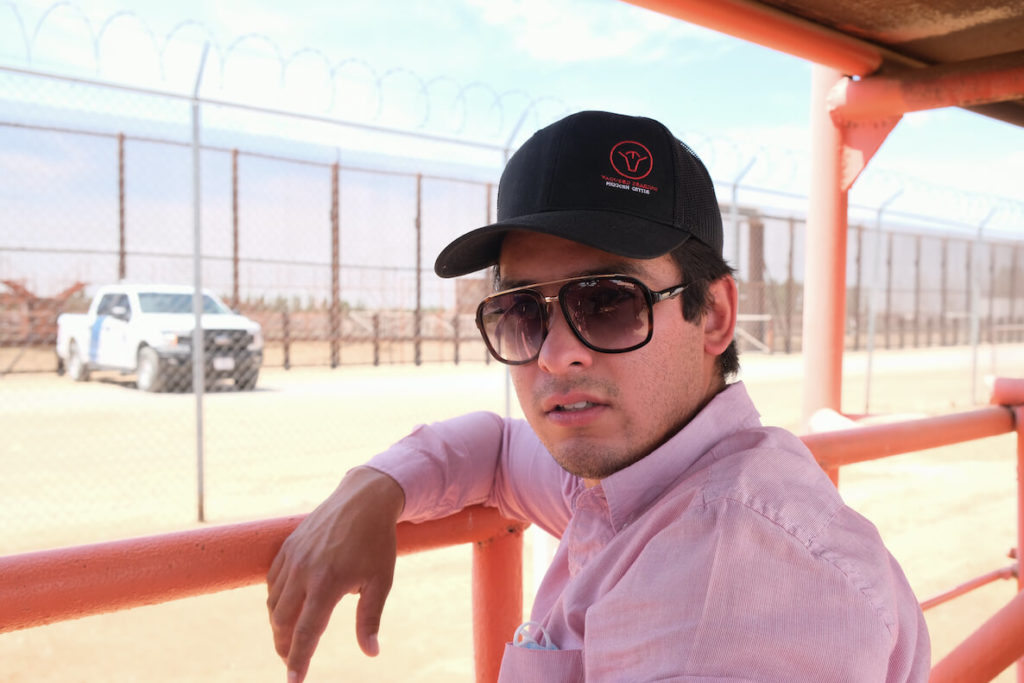
The result is “Generation Pandemic,” a stunning online archive of oral histories and photographs that screams to be turned into a National Geographic spread, a Discovery Channel documentary, the foundation for an updated take on Arnett’s theories.
Jinich and Strickberger—childhood friends who grew up on the same block in Chevy Chase, MD—sat down at their shared apartment in West Philly to talk about the experiences of young people during the pandemic, how rejection has made them stronger, and their go-to roadtrip snacks. What follows is a condensed and edited version of that interview.
![]()
Jessica Blatt Press: When you set out on this road trip, what was your goal—did you two have a hypothesis about what you’d find, or what were you seeking?
Max Strickberger: When we started the trip, we had been inside the same four walls with each other and we’d felt that there was so much going on in the world but we were just reading about it on our phones. I felt so frustrated that I wasn’t doing something that was engaging more seriously with what was happening around us. We didn’t want to be home, we didn’t see as much value to what we’d always loved about school, and there was stuff that’s so much bigger going on in the world. We asked ourselves: Why are we not thinking more about what that means?
RELATED: Philly man sets out on a daunting mission to meet 10,000 strangers
Alan Jinich: We didn’t really know how the project was going to take shape. We knew when we started the road trip that we wanted to do these interviews and just talk to people our age. But we didn’t know if we were going to do a very broad oral history project, or if we were just going to interview a lot of people in one place, or maybe just follow one person for a while. We ended up going the more broad route. But going into it, it was all very open.
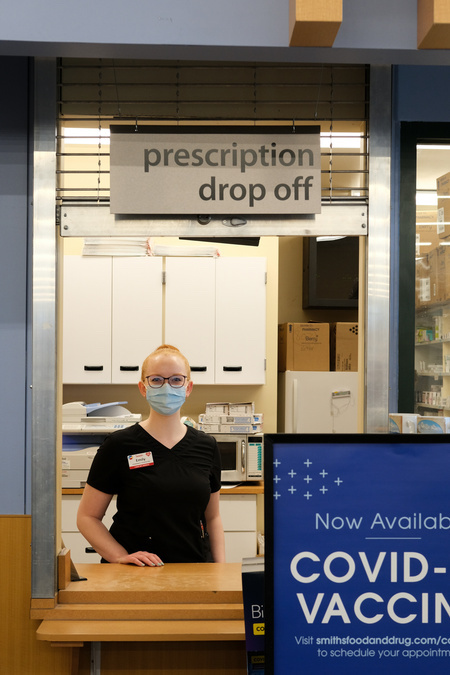
MS: After our first stop in Tennessee, nothing else was lined up. So our first day, when we were in Greensboro, Alabama, we spent the whole day walking through Main Street of this very small town of 2,500 people and didn’t get any interviews. We looked at each other like Ok, this project could be over before it even started. We didn’t really know what we were going to find and what would come out of it.
Only by doing interviews, getting better at interviews, getting rejected a bunch of times, could something more concrete come into focus. Although we did hope that we would create some type of archive. We worked with a history professor from Penn, Kathy Peiss; just out of the kindness of her heart, she’s very generous and met with us outside of school. And we made a loose syllabus with her and she kind got us thinking about an archive. So it was loose, but it only took shape once we started doing it.
JBP: Do you think there are misconceptions about this age group you chose to focus on—your age group?
MS: There’s always kind of this idea of older people thinking the younger generation is lazy, not as ambitious, or, in the case of our generation, stuck on screens or maybe too idealistic, right? But during the interviews, what really stood out to me was how a lot of young people recognized, in a really empathetic way, how lucky they were to be young during the pandemic. That was really interesting because it wasn’t something we brought up, but a number of people we interviewed said Wow, I’m just so grateful. If I was older right now, if I had five kids, if I had a mortgage, I would be so much more worried.
And I think people felt some degree of freedom in being young, and they recognized from an empathetic perspective that not everyone has this and we’re really lucky that we do. And that wasn’t just like a class piece; it was very much an age-related commentary on what’s going on now.
RELATED: 10-year Philly project explores the power of empathetic listening
JBP: Speaking of empathy, how did you win people over to be vulnerable and trusting with you two—what was that process like for you?
MS: We definitely didn’t win everyone over. We had a lot of rejections. And I think being rejected was inherent to the project and got us much more comfortable with it. At the same time, I’ll recognize that we could only access certain stories. Alan did some of the interviews in Spanish, for example, and if it had just been me doing the trip, I would’ve had no access to those. And some of those stories were some of the best ones that we got. So language was just one barrier that we faced from an inaccessibility standpoint.
AJ: When we were in Circleville, a small town in Utah, we were driving around different farms trying to meet people. And we ended up meeting these guys, Jade and Tyler and Scott Dalton, who are brothers and cousins. And they were super down to chat, they were interested in why we were in Circleville and we got to talking, but when we told them Oh we’re interested in doing these interviews for this project, they were way more skeptical. We kept talking for 10, 20, 30 minutes, they showed us around their garage and stuff, and then eventually we told them What we’re doing now? This is the interview, all I’d need to do is turn on my recorder and it’s the same thing, and they’re like Oh, I didn’t realize it would be so casual, let’s do it. And that’s how we ended up interviewing them, and then it ended up going on for hours and hours and we toured the farm and recorded it all. They even invited us for dinner. We didn’t come in with a list of questions. They were really just very open-ended conversations. I think as soon as people realized that, they were oftentimes more comfortable.
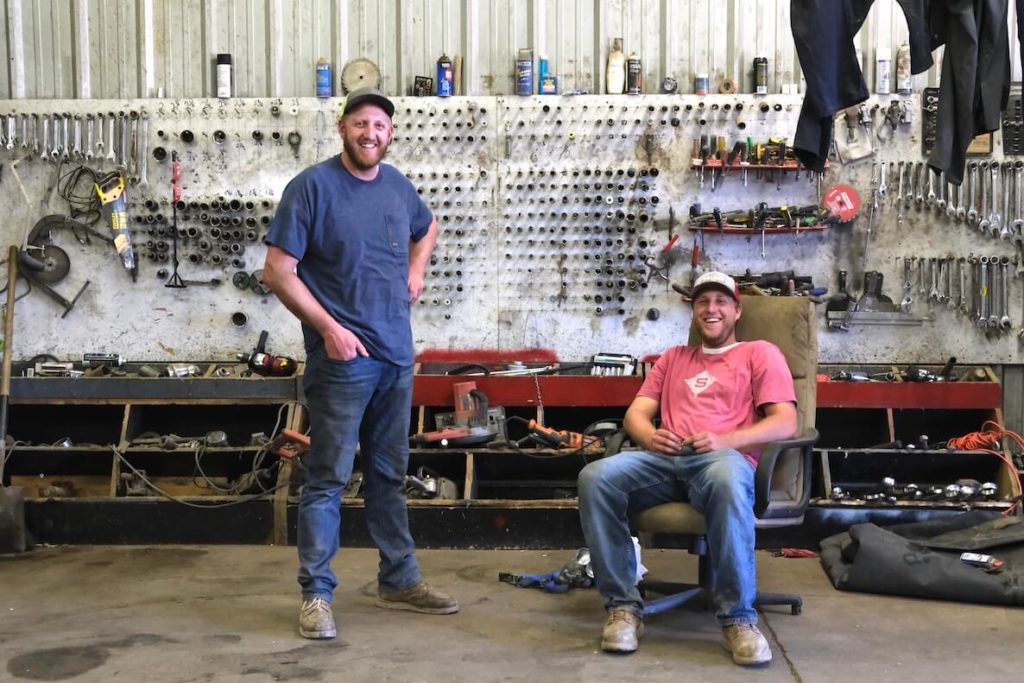
MS: I think it also helped to just point out that it was a weird situation. I’m sure if I was approached by two strangers in the middle of the workday, I’d think it was pretty weird as well. So trying to introduce some humor into the situation helped. It was a little bit of persistence, a little bit of luck. And then just trial and error.
RELATED: New film captures a Philly family’s struggle with opioid addiction
JBP: What overarching insights have you each taken away from the experience, and how has this journey changed you?
AJ: It’s been really hard for us to come up with big take-aways for this project because the stories were just so different. There’s many commonalities, but mostly differences. But it also just feels like the start of a study on our generation. And I feel like the bigger take-aways might come with time. I can tell you immediately how the pandemic affected people my age, but I think the more interesting take-aways will come when we have time to process it and also when we see the changes that happened with the people we interviewed.
MS: One big theme that came out of it for us was about movement. We saw young people being in a place where they could get up and move entirely. So we interviewed Shay, in New Orleans, and she had moved four days before we interviewed her, from Virginia. Her job went remote, she realized I can take my entire life and move somewhere else. And Julius, who moved from Wisconsin to a town in Santa Fe.
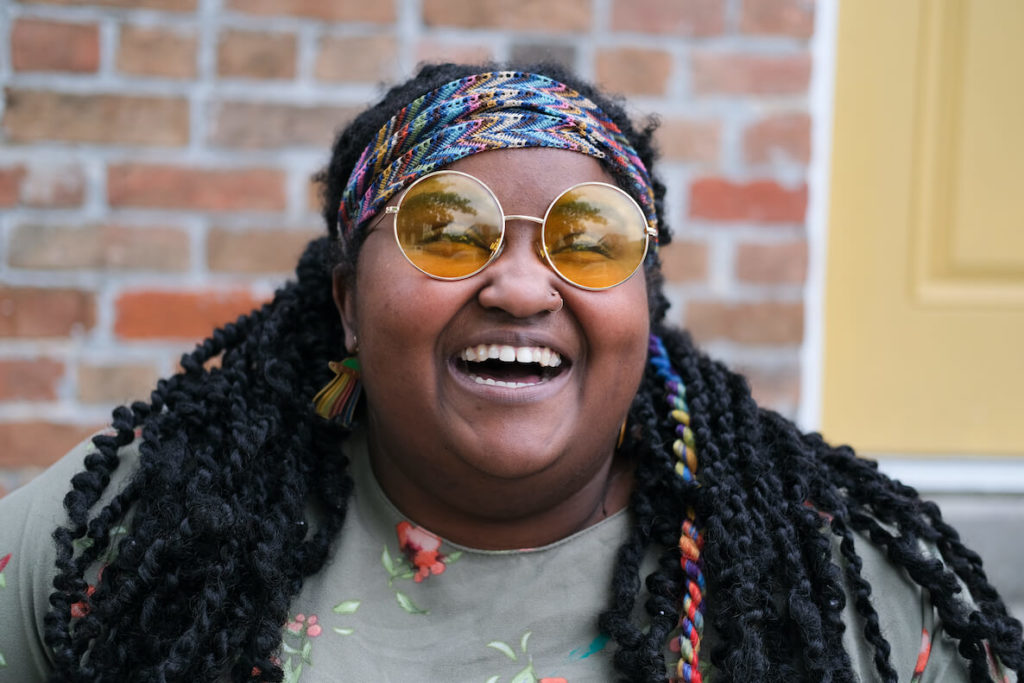
And then, at the same time, there was the opposite where, because you were a young person, you weren’t financially secure, and you still relied on your family in a lot of ways. For some people, the pandemic reinforced being in a place that wasn’t really safe or secure for you and you couldn’t leave home. We saw that in Santa Fe in an interview with Sharon who, prior to the pandemic, spent her whole life trying to stay out of her house. But during the pandemic, she had to be home, and home for her meant a really tight trailer. And at a very base level she said it’s just embarrassing trying to turn on my Zoom and people are screaming in the background because of the tension between her mom and her brother. So for her, the pandemic meant the opposite of movement, and it meant she had to be home, and home didn’t feel safe. The pandemic exacerbated that reality for her. So that was kind of the opposite of movement, it was really constrictive.
RELATED: New book spotlights tattooed Philly women sharing stories of trauma
AJ: I think a lot of the categories were kind of very extreme. Like when we think about mental health stuff too; people got into really bad places with their mental health, or some people were just totally thriving and living their best life that they couldn’t have if they were stuck in an office somewhere. So they’re definitely extremes in both ways.
MS: There were also themes of empathy and gratitude.
AJ: People were really grateful. I’m thinking of Adrian. He’s the EMT who wants to become a firefighter. He experienced a lot of bad things this year related to custody of his child and not being able to stay physically fit in the way that he would’ve liked to. But he still expressed so much gratitude for not being in the place that a lot of older folks were.
JBP: Max, you’re an English major, and Alan, you’re a neuroscience major. But how did this experience change what you want to do in the future?
AJ: It got me so excited to do more of this stuff. It was my first time doing a really long-term creative project. I’d never done a project that had this kind of depth and kind of length to it. If I could get the support, I’d totally just keep going.
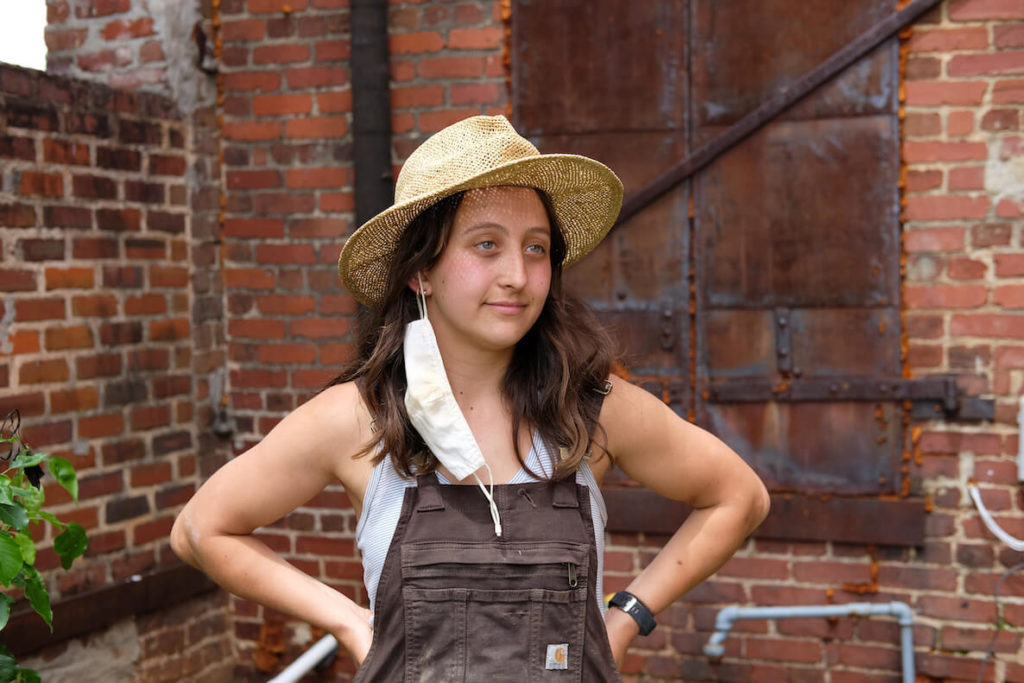
MS: I’ve always loved stories. I grew up listening to my grandpa making up fictional stories and telling them to me. In high school, I started a culture and identity magazine that was predicated on personal storytelling. I think the project just confirmed that I love asking questions and was in such a fortunate place where I could just go out and have an excuse to talk to people after a year of interacting with zero strangers. That was really meaningful. It also made me more interested in concepts around solutions-based journalism and the limitations that storytelling has in some ways. It made me think What are other ways that can provide direct service to communities that storytelling bumps up against or needs another push beyond?
JBP: What was your sustenance on the road?
AJ: A lot of cheese sandwiches for Max. We’d go to the grocery store and we had a cooler in the back: It was almost all cheese and bread. Sriracha. A lot of granola bars. Carrots and hummus. I ate a lot of burgers, that’s the one thing you’ll find anywhere.
JBP: On road trips, one person invariably ends up dominating what everyone else listens to—what did you listen to on the road for all those hours?
MS: Too much music, and too few Audible books.
AJ: I’m more of a music guy and Max is more of a podcast/audio book guy. So we would kind of switch. Although I feel like maybe I was in control?
MS: Switch? It was definitely lopsided!
AJ: When I was driving, I needed something to keep me awake! And loud music would keep me awake. Audiobooks, less so.
MS: For some reason, every time we turned on the car, the same song [the hypnotic Tubesocks] on Alan’s phone would play automatically. And now, anytime that song plays, I feel like I’m getting up early in the middle of Alabama, and we have to drive.
JBP: How has this experience affected your already-strong friendship?
AJ: We saw different sides of each other. It’s one thing to be friends or roommates, but then to be work partners is different. And Max really pushed me because he was the one who really had the guts in the beginning to go up to people and approach strangers. I was way more anxious about it. By the end of the trip we were walking into 30 businesses getting rejected by all of them. Just going to the next one, whatever.
MS: We went to Chinatown in Chicago, I’m like I’m going up this side of the street, you’re going up that side. By the end of the day, we had gotten rejected from every single business in Chinatown. Except then Alan got the interview with Fernando, which is up on the site. Alan is very, very steady. And he put the entire website together, which is so meaningful, to have what we did in one place. All together.
As much as I believe in and love the written form, Alan has extraordinary photos that I can go through and think back to the experience and that’s so nice, that’s such an archive. I don’t send Alan stories and quotes when I think back to our trip; I send him pictures that pop up on my phone that he took. And I’m really grateful to have that archive.
JBP: So are we—and history will undoubtedly thank you someday, too.

More on young people making a difference
Generation Pandemic creators Alan Jinich and Max Strickberger | Photo by Susan Korec



